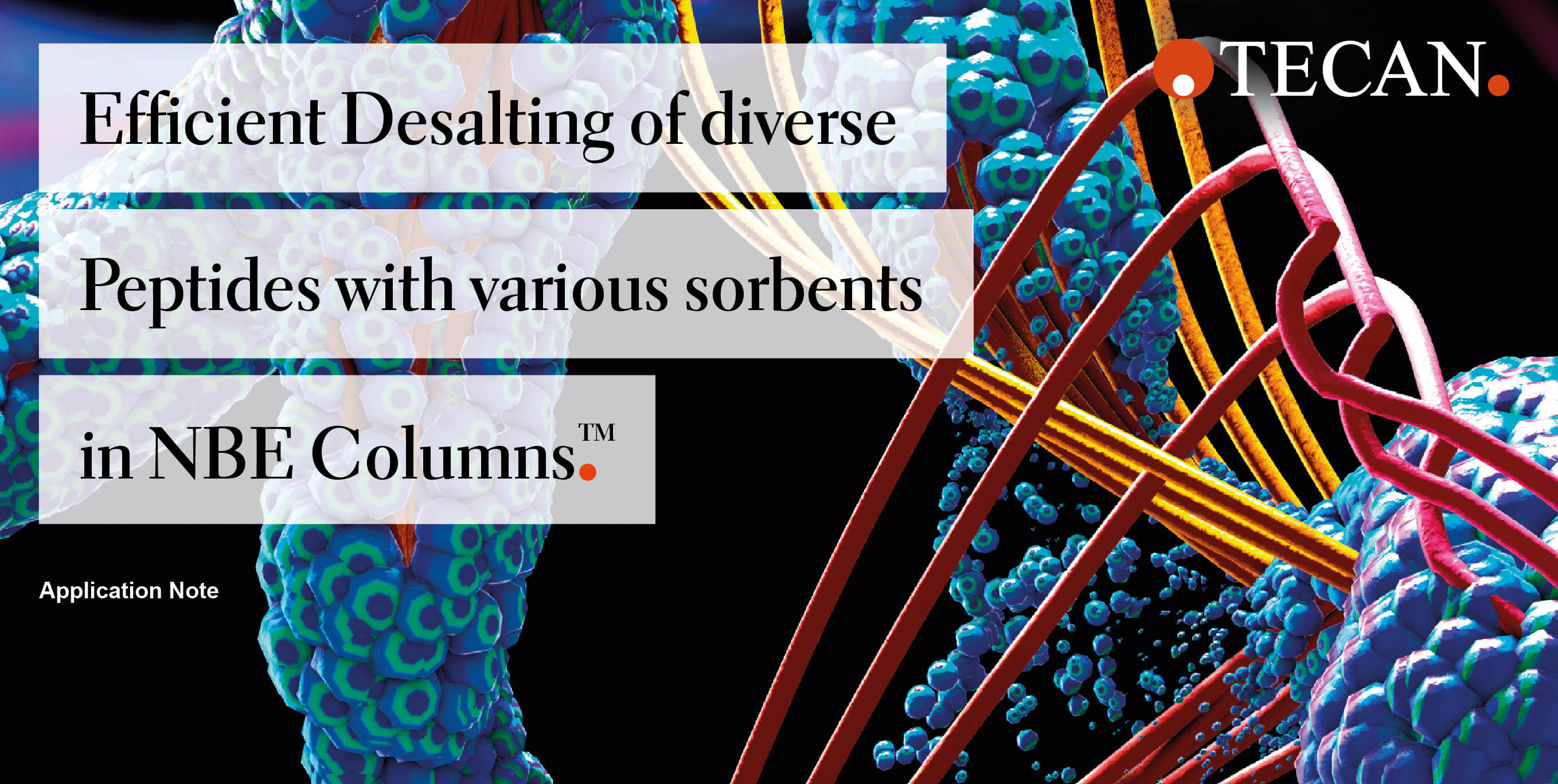
Introduction
Mass Spectrometry (MS) is an essential tool for analysis of biomolecules, such as proteins and peptides. However, MS sensitivity is negatively impacted by the presence of impurities and contaminants, such as salts and buffers, used in protein digestion. Therefore, sample purification is necessary, prior to analysis by MS. Solid Phase Extraction (SPE) offers a robust method for this type of sample clean up. This is achieved by the peptides binding to the sorbent, allowing for non-retained impurities to be washed using an aqueous solution, and final peptide elution using an organic modifier.
Both Cerex® Atlas and WWP2 belong to the class of hydrophilic-lipophilic balanced (HLB) polymeric sorbent, which is an N-vinylpyrrolidone-divinylbenzene co-polymer. These sorbents provide selectivity for both polar and nonpolar analytes thus allowing the user to extract a variety of samples with ease. The divinylbenzene lipophilic back bone provides hydrophobic selectivity while the pyrrolidone hydrophilic chemistry will help increase interactions with polar functional groups of the analyte.
Trace-N20 is an end-capped silica C18 sorbent that is ideal for reverse phase retention of neutral and polar analytes. It’s smaller particle size allows for maximized contact for interaction and capacity.
This Application Note describes the use of Cerex® Atlas, WWP2 and Trace-N20 sorbents for desalting of a group of 20 diverse peptides.





